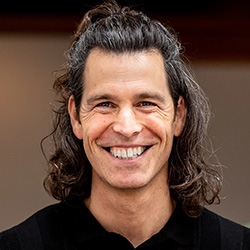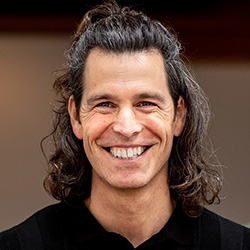

Search Results: honesty
-
- Learn how to use empathy to dissolve conflict
- Deepen your NVC skills to help let go of judgments
- Explore approaches for asking for what you want
- Listen to the conflict within yourself
-
When deciding if someone crossed your boundaries and how to respond, you may get conflicting opinions on it. These opinions can be coarse attempts to manage life with rules about what should(n’t) happen. Instead, so that you can find where you want to invest your energy, ask yourself questions that reveal what for you is truly in integrity, nourishing, connects to your heart, and deepens self understanding. Read on for examples.
-
Two NVC trainers went into dangerous, war torn territory to share the skills they found so valuable but end up learning that they need to first apply those skills before those they came to help could receive what they had to offer. Only when the foundation of connection and trust was built could they mediate the conflicts using empathic communication.
-
- Learn the essentials of NVC from its founder, Dr. Marshall Rosenberg
- Discover how to connect with others with empathy, integrity, and peace
- Understand the origins of NVC and how to apply it within yourself and in your life
- Experience how empathy supports healing in your most intimate relationships— and in the world at large!
-
Dear friends,
As we move toward the close of this year, I find myself reflecting on the many seasons we have shared together. Years of learning, growing, stumbling, recommitting, and discovering new ways to bring compassion and courage into our lives. You have been part of this journey with me, and I carry deep gratitude for every step we’ve taken together.
-
As a beginner in NVC, you might find your attempts to practice your NVC only increases conflict, disconnection and upset in your interactions with people. Or perhaps people start seeing you as inauthentic. From there, you may find yourself sinking deeper into self-judgement. In this article, Jim Manske shows us how to shift these potential unintended outcomes, into deeper NVC consciousness that brings in more warmth, presence and open-hearted connection.
-
What would happen if you considered that time is a concept, and that it doesn't rule your life? What would it mean to make all choices based on needs and not on time? Do you obey the external rhythm of the clock over and above the internal rhythm of your life energy? This is an invitation into more responsibility, awareness, honesty, choice and freedom.
-
Repairing betrayal may include rebuilding self trust, getting support, empathy on both sides over time, and new agreements. Even though your (in)actions don't "cause" someone's behavior, acknowledging any part you played in creating conditions for the behaviors to arise, can support repair. Trust builds slowly as new skills, ways of relating and experiences that reflect honesty, self responsibility, and respect are consistent over time.
-
- Discern what is preventing your communication style from being effective
- Create a communication style that works
- Resolve everyday conflicts and misunderstandings
- Create a deeper sense of connection, trust, and cooperation
- Heal old wounds between you and others, as well as within yourself
- Be the leader and contributor you want to be in any situation
-
This document is for organizations that want to integrate NVC. The intention is to use conflict as a stimulus to personal growth, more open and honest relationships, and life-affirming change. It mentions using NVC skills such as self connection, empathy, honesty, and requests (and protective use of force as last resort) to navigate the conflict with an intention of connection.
-
In this practice group class, certified CNVC trainers Jim and Jori Manske are facilitating the exploration of the topic of Mourning using the three modes of NVC: self-empathy, honesty and empathic presence. You'll learn how to accept a loss, let yourself feel the sadness and all the emotions, and allow yourself to grieve.
-
Hearing "no" can bring emotional pain, but it can be delivered in a way that minimizes discomfort. We can find the gift in the request, express feelings and needs instead of saying "no," and offer an alternative solution that supports all parties. This approach fosters honesty, respect, and understanding, while setting boundaries if necessary to protect oneself. Clear communication reduces the likelihood of conflict.
Quick Links

Stay in Touch!
We value your privacy, won't share your email address and you can easily unsubscribe any time.












